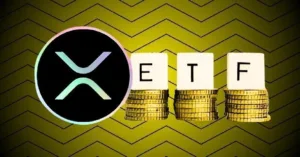A financial instrument where assets or cash are held by a third party while a buyer and a seller complete a deal.
What is Escrow?
Escrow accounts come into play when there is uncertainty over whether one party or another will be able to meet the terms of a transaction.
These types of accounts have been used for many years in property transactions. Funds are held by a third party until the legal paperwork on a house has been completed, which then releases cash to the seller and the house to the buyer.
Escrow can be useful when individuals want to trade assets from their digital wallets for cash, but are unsure whether the other party will back out once funds are sent.
Escrow service companies are third parties who temporarily hold and regulate payment in a transaction, ensuring that the buyer and seller stick to the terms of their arrangement.
These firms charge a commission that ranges from 1% to 2%, which may be levied on the buyer, or seller, or both sides of the deal.
Some of these firms are governed by national regulators, and cash lodged with them may be covered by consumer compensation schemes, such as the Federal Deposit Insurance Corporation in the U.S.
Try to use a regulated firm when possible, because using an escrow service still means that, at some point, you will need to trust a third party with your funds. This means you may want a watchdog with teeth if things go wrong.




